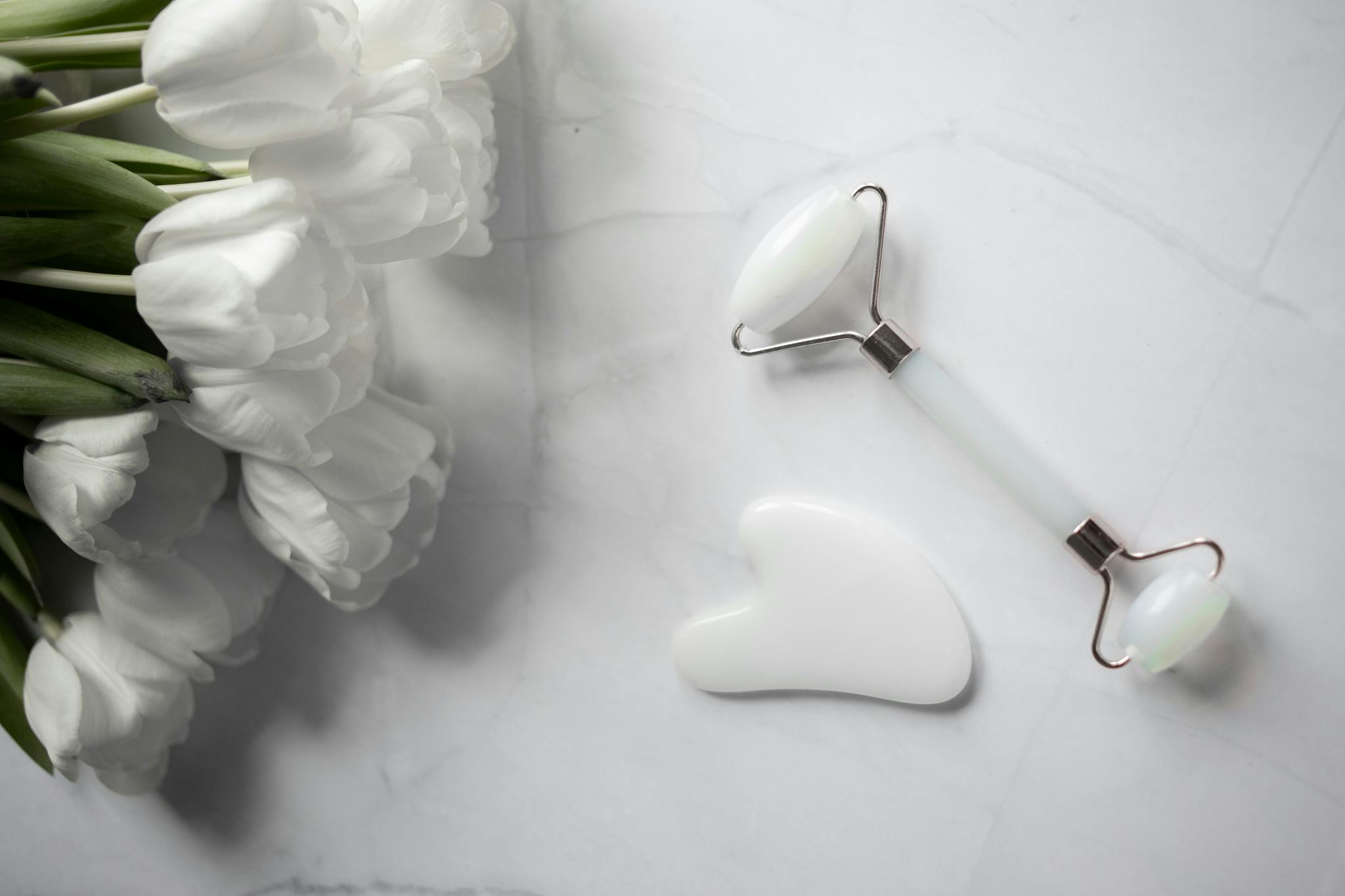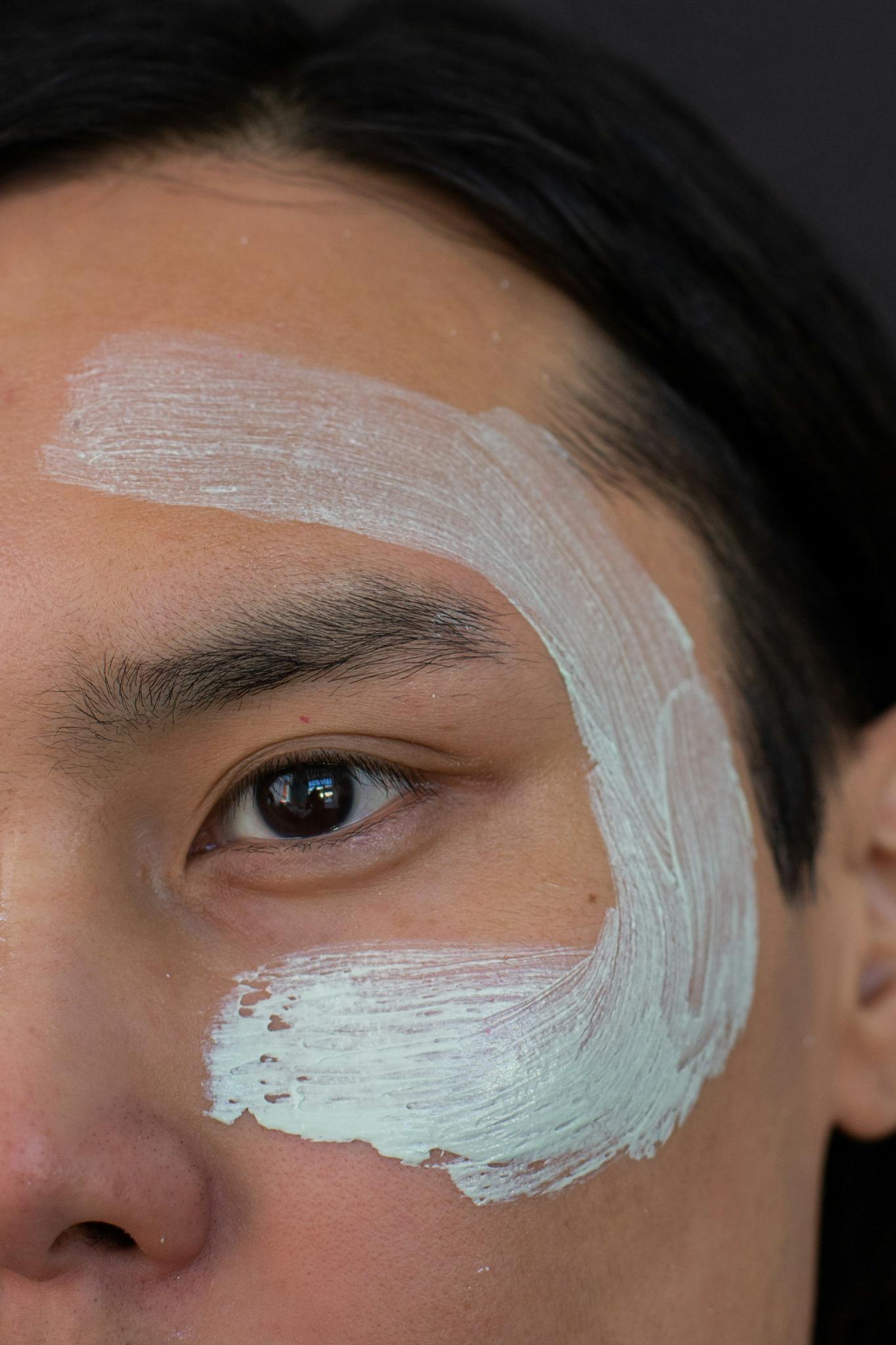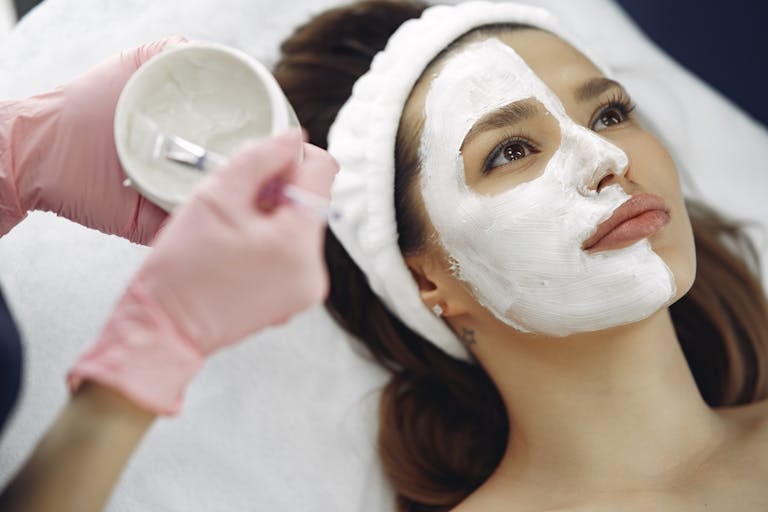
If you’re struggling with sensitive skin, you’re not alone. A 2019 study found that ~60–70% of women and 50–60% of men worldwide reported having some degree of sensitive skin. Their skin reacts easily to various products and environmental factors. The good news is that a natural sensitive skin routine can help soothe and protect your delicate complexion. Let’s explore how to create a gentle, effective skincare regimen using natural ingredients.
Understanding Sensitive Skin
Before embarking on your natural sensitive skin routine, it’s crucial to have a comprehensive understanding of what sensitive skin is and how it behaves. This knowledge will help you tailor your skincare approach more effectively.
What is Sensitive Skin?
Sensitive skin is a condition characterised by heightened reactivity to external factors. It’s not a medical diagnosis but rather a skin type that requires special care. People with sensitive skin often experience:
- Easily irritated or reddened skin: The skin may flush or develop red patches in response to certain products, environmental factors, or even emotional stress.
- Prone to allergic reactions: Sensitive skin is more likely to react to common ingredients in skincare and household products.
- Stinging or burning sensations: Many people with sensitive skin report discomfort when using certain products, especially those containing fragrances or alcohol.
- Tightness or discomfort: The skin may feel taut, itchy, or generally uncomfortable, particularly after cleansing or exposure to environmental stressors.
- Increased dryness: Sensitive skin often has a compromised skin barrier, leading to increased water loss and a tendency towards dryness.
- Visible signs of irritation: This can include rashes, bumps, or even slight swelling in response to triggers.
Causes of Sensitive Skin
Sensitive skin can be caused by various factors:
- Genetics: Some people are simply predisposed to having more reactive skin.
- Skin disorders: Conditions like eczema, rosacea, or psoriasis can increase skin sensitivity.
- Environmental factors: Pollution, extreme weather, and UV radiation can all contribute to skin sensitivity.
- Hormonal changes: Fluctuations in hormones, such as during pregnancy or menopause, can affect skin sensitivity.
- Over-exfoliation: Excessive use of harsh scrubs or chemical exfoliants can damage the skin barrier, leading to increased sensitivity.
- Dehydration: Lack of proper hydration can make skin more reactive.
Identifying Sensitive Skin
While a dermatologist can provide a definitive diagnosis, there are some signs you can look out for:
- Your skin reacts negatively to many common skincare products.
- You frequently experience redness, itching, or burning after using products.
- Your skin is prone to rashes or bumps.
- You notice that your skin is easily affected by weather changes.
- Your skin feels uncomfortable or tight after cleansing.
The Skin Barrier and Sensitive Skin
A key factor in sensitive skin is often a compromised skin barrier. The skin barrier is the outermost layer of the skin, responsible for keeping moisture in and irritants out. When this barrier is weakened, it can lead to:
- Increased transepidermal water loss (TEWL)
- Greater penetration of potential irritants
- Higher risk of infection
- More visible signs of ageing
Understanding your skin barrier’s health is crucial in managing sensitive skin and creating an effective natural sensitive skin routine.
Triggers for Sensitive Skin
Common triggers that can cause reactions in sensitive skin include:
- Fragrances (both synthetic and natural)
- Alcohol-based products
- Harsh cleansers, especially those with sulphates
- Extreme temperatures
- Certain fabrics (like wool or synthetic fibres)
- Strong winds or sun exposure
- Stress and lack of sleep
The Importance of pH in Sensitive Skin Care
The skin’s natural pH is slightly acidic and normal at around 4.7. Products that are too alkaline can disrupt this balance, potentially leading to irritation. When choosing products for your naturally sensitive skin routine, look for those that are pH-balanced or slightly acidic.
Sensitive Skin vs. Sensitised Skin
It’s important to distinguish between naturally sensitive skin and sensitised skin:
- Sensitive skin is an inherent skin type that you’re born with.
- Sensitised skin is a temporary condition caused by external factors or improper skincare practices.
Understanding this difference can help you address the root cause of your skin’s reactivity and choose the most appropriate natural sensitive skin routine.
By gaining a deeper understanding of sensitive skin, its causes, and how it behaves, you’ll be better equipped to create a natural sensitive skin routine that truly addresses your skin’s needs. Remember, while these guidelines are helpful, every person’s skin is unique. Pay attention to how your skin reacts to different factors and adjust your routine accordingly.

Why Choose a Natural Sensitive Skin Routine
Opting for a natural sensitive skin routine can offer numerous benefits for those with delicate complexions. Let’s delve deeper into the reasons why natural ingredients and products can be particularly beneficial for sensitive skin:
- Fewer Irritants:
Natural skincare products often contain fewer synthetic chemicals, which can be potential irritants for sensitive skin. Many conventional products include ingredients like:
- Synthetic fragrances
- Artificial colours
- Parabens
- Sulphates
- Phthalates
These substances can trigger reactions in sensitive skin. By choosing a natural sensitive skin routine, you’re reducing exposure to these potential irritants.
- Soothing Ingredients:
Nature provides a wealth of ingredients known for their calming and anti-inflammatory properties. Some examples include:
- Chamomile: Contains azulene, known for its skin-soothing effects
- Aloe vera: Rich in antioxidants and has cooling properties
- Calendula: Helps reduce inflammation and promote healing
- Oat extract: Contains avenanthramides, which have potent anti-inflammatory effects
These natural ingredients can help calm irritated skin and reduce redness, making them ideal for a sensitive skin routine.
- Nourishing and Strengthening:
Many natural oils and butter are rich in essential fatty acids, vitamins, and antioxidants that can help strengthen the skin barrier. A strong skin barrier is crucial for sensitive skin as it helps:
- Retain moisture
- Protect against environmental stressors
- Reduce the penetration of irritants
Ingredients like jojoba oil, shea butter, and rosehip oil can provide these nourishing benefits without overwhelming sensitive skin.
- Environmental Considerations:
Choosing a natural sensitive skin routine often aligns with eco-friendly values. Natural ingredients are typically:
- Biodegradable
- Sustainably sourced
- Less likely to contribute to water pollution
This can be particularly appealing if you’re concerned about the environmental impact of your skincare routine.
- Transparency in Ingredients:
Natural skincare brands often pride themselves on ingredient transparency. This can be particularly beneficial for those with sensitive skin who need to carefully monitor what they’re putting on their skin. Clear, recognisable ingredient lists make it easier to:
- Identify potential triggers
- Understand what you’re applying to your skin
- Avoid ingredients you know don’t work for you
- Holistic Approach to Skin Health:
Natural skincare often takes a more holistic approach to skin health. Rather than just treating surface-level symptoms, natural ingredients work to support the skin’s overall function and health. This can lead to long-term improvements in skin condition, rather than quick fixes that may irritate sensitive skin.
- Gentler Preservation Methods:
While preservation is necessary to prevent bacterial growth, many synthetic preservatives can irritate sensitive skin. Natural products often use gentler preservation methods or natural preservatives like:
- Rosemary extract
- Grapefruit seed extract
- Vitamin E (tocopherol)
These can be less likely to cause reactions in sensitive skin.
- Potential for Customisation:
Natural ingredients often lend themselves well to customisation. This can be particularly beneficial for sensitive skin, as needs can vary greatly from person to person. You might be able to:
- Mix your own oils for a custom facial oil blend
- Add a drop of chamomile essential oil to your moisturiser for extra soothing properties
- Create DIY masks with simple, natural ingredients you know work for your skin
- Synergy with Skin’s Natural Processes:
Many natural ingredients work in harmony with the skin’s natural processes. For example:
- Plant oils similar to the skin’s natural sebum can help balance oil production
- Hyaluronic acid, found in some plants, mimics the skin’s own hydrating molecules
- Certain plant extracts can support the skin’s natural renewal process
- Fewer Harsh Active Ingredients:
While active ingredients like retinol or alpha-hydroxy acids can be beneficial, they can also be too harsh for sensitive skin. Natural routines often focus on gentler ingredients that support skin health without causing irritation.
It’s important to note that “natural” doesn’t automatically mean “safe” for all sensitive skin. Even natural ingredients can cause reactions in some individuals. I have said it before and I’ll say it again always patch-test new products and introduce them to your routine gradually.
By choosing a natural sensitive skin routine, you’re opting for a gentler, more holistic approach to skincare. This can lead to calmer, healthier skin in the long run, with fewer irritations and a stronger skin barrier. Remember, the key is finding the right balance of natural ingredients that work for your unique skin needs.

Creating Your Natural Sensitive Skin Routine
Step 1: Gentle Cleansing
Start your natural sensitive skin routine with a mild, soap-free cleanser. Look for products containing:
- Chamomile: Known for its soothing properties
- Aloe vera: Calming and hydrating
- Oat extract: Helps reduce inflammation
Try this: Mix a tablespoon of finely ground oats with enough water to form a paste. Gently massage onto damp skin and rinse off.
Step 2: Alcohol-Free Toning
Toning is optional in a natural sensitive skin routine, but if you choose to include it, opt for an alcohol-free formula. Consider:
- Rose water: Soothing and balancing
- Cucumber water: Cooling and refreshing
Tip: Store your natural toner in the fridge for an extra cooling effect.
Step 3: Hydration is Key
Moisturising is crucial in any natural sensitive skin routine. Look for products with:
- Jojoba oil: Similar to skin’s natural sebum
- Shea butter: Rich in fatty acids and vitamins
- Calendula: Known for its healing properties
DIY option: Mix a few drops of jojoba oil with aloe vera gel for a light, natural moisturiser.
Step 4: Sun Protection
everyone needs regardless of skin type needs sun protection. Look for natural, mineral-based sunscreens containing:
- Zinc oxide: Offers broad-spectrum protection
- Titanium dioxide: Another gentle, effective sunblock
Remember: Reapply sunscreen every two hours when outdoors.
Natural Masks for Sensitive Skin
Once a week, treat your skin to a soothing mask as part of your natural sensitive skin routine:
- Honey mask: Apply raw honey to clean skin for 15 minutes.
- Oat and yoghurt mask: Mix equal parts ground oats and plain yoghurt.
Remember, everyone’s skin is unique. What works in one person’s natural sensitive skin routine may not work for another. Be patient and willing to adjust your routine as needed.

Additional Tips for Your Natural Sensitive Skin Routine
- Patch test: Always test new products on a small area before full application (told you I would say it again)!
- Keep it simple: A minimalist routine is often best for sensitive skin.
- Be consistent: Give your natural sensitive skin routine time to work.
- Listen to your skin: If a product causes irritation, discontinue use.
Ingredients to Avoid in Your Natural Sensitive Skin Routine
When creating your natural sensitive skin routine, steer clear of:
- Fragrances (even some essential oils can be irritating)
- Alcohol
- Harsh exfoliants
- Sulphates
Lifestyle Factors for Healthy Sensitive Skin
Your natural sensitive skin routine extends beyond just products:
- Stay hydrated
- Eat a balanced diet rich in omega-3 fatty acids
- Manage stress through relaxation techniques
- Use gentle, natural fibres in clothing and bedding
Conclusion: Embracing Your Natural Sensitive Skin Routine
Embarking on a natural sensitive skin routine is more than just a skincare choice – it’s a commitment to understanding and nurturing your skin’s unique needs. As we’ve explored, sensitive skin requires special care and attention, and a natural approach can offer numerous benefits.
By choosing a natural sensitive skin routine, you’re opting for gentler, often more nourishing ingredients that work in harmony with your skin’s natural processes. From soothing chamomile to barrier-strengthening jojoba oil, nature provides a wealth of ingredients that can calm, protect, and support sensitive skin without the need for harsh chemicals or synthetic additives.
Remember, the journey to healthier, calmer skin is a personal one. What works in one person’s natural sensitive skin routine may not work for another. Patience and consistency are key. It may take time for your skin to adjust to new products and for you to see significant improvements. Don’t be discouraged if you don’t see immediate results – gentle, natural care often yields more sustainable, long-term benefits for your skin’s health.
As you develop your natural sensitive skin routine, keep these key points in mind:
- Simplicity is often best. A minimalist routine with carefully chosen, high-quality natural products can be more effective than a complex regimen.
- Listen to your skin. Pay attention to how your skin reacts to different ingredients and adjust your routine accordingly.
- Protect your skin barrier. Many of the natural ingredients we’ve discussed help strengthen this crucial layer of your skin, which is often compromised in sensitive skin types.
- Don’t forget internal factors. While topical care is important, remember that diet, hydration, stress management, and sleep all play crucial roles in skin health.
- Be cautious with new products. Always patch test and introduce new items to your routine gradually.
- Consider the holistic picture. Your natural sensitive skin routine is part of a larger approach to skin health that includes lifestyle factors and overall wellbeing.
It’s also worth noting that while a natural approach can be highly beneficial, it’s not a substitute for professional medical advice. If you have persistent skin issues or severe reactions, always consult with a dermatologist.
As you continue on your natural skincare journey, remember that your skin is unique. Embrace the process of discovering what works best for you. Celebrate the small victories – a day without irritation, a noticeable glow, or simply feeling more comfortable in your skin.
Moreover, choosing a natural sensitive skin routine often aligns with broader values of sustainability and environmental consciousness. By opting for natural, often more eco-friendly products, you’re not just caring for your skin, but also making a positive choice for the planet.
In the end, the goal of any skincare routine – natural or otherwise – is to support healthy, comfortable skin that allows you to feel confident and at ease. A natural sensitive skin routine, with its focus on gentle, nourishing care, can be an excellent path to achieving this goal.
As you move forward with your natural sensitive skin routine, stay curious, stay informed, and most importantly, stay attuned to your skin’s needs. With time, patience, and the right natural ingredients, you can develop a routine that not only soothes and protects your sensitive skin but also brings you joy in your daily self-care ritual.
Remember, beautiful skin is healthy skin, and healthy skin is skin that’s cared for in a way that respects its natural balance and needs. Your natural sensitive skin routine is a journey – embrace it, enjoy it, and let your skin’s natural radiance shine through






